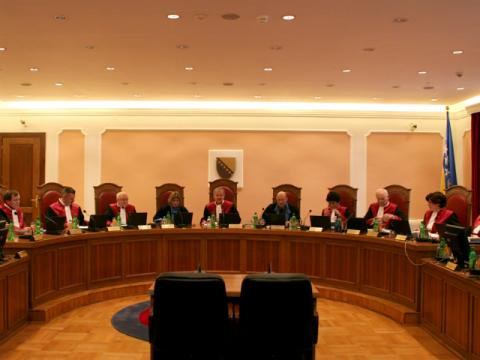Bosnian Court Ruling Lends Weight to Croat Agitation

A new constitutional court ruling in Bosnia and Herzegovina about election laws could prove difficult to implement - but, if it is not implemented, could obstruct the formation of a new government in 2018, experts said.
The ruling has complicated the already vexed issue of elections reform while boosting demands for negotiations over the so-called "Croat question", including calls for the creation of a third, Croat-dominated entity, alongside the existing two.
The decision of the Constitutional Court last week calls for changes in the law on how the upper house of the Federation entity parliament is elected.
It was issued in response to a complaint by Dr Bozo Ljubic, president of the General Council of the Croatian National Congress of Bosnia and Herzegovina.
The ruling found that a law in the Federation entity's constitution, which obliges the 10 constituent cantons to put forward at least one delegate to the House of Peoples from each of the three main ethnic groups [Bosniaks, Serbs and Croats] - even if there are only a handful of that ethnic group living in the canton - was inconsistent with the principle of equality enshrined in the state-level constitution.
It rule that the entity's constitution and the country's election law must be "harmonised" within six months.
At present, under the Federation entity's constitution, the House of Peoples is made up of 58 delegates, 17 Bosniaks [Muslims] group, 17 Croats, 17 Serbs, and seven from "other" ethnicities.
Each canton must put forward delegates based on a complex calculation to reflect the proportions of the three main ethnic groups living there; but it must also send a minimum of one delegate from each ethnic group.
Ljubic argued that this violated the...
- Log in to post comments
